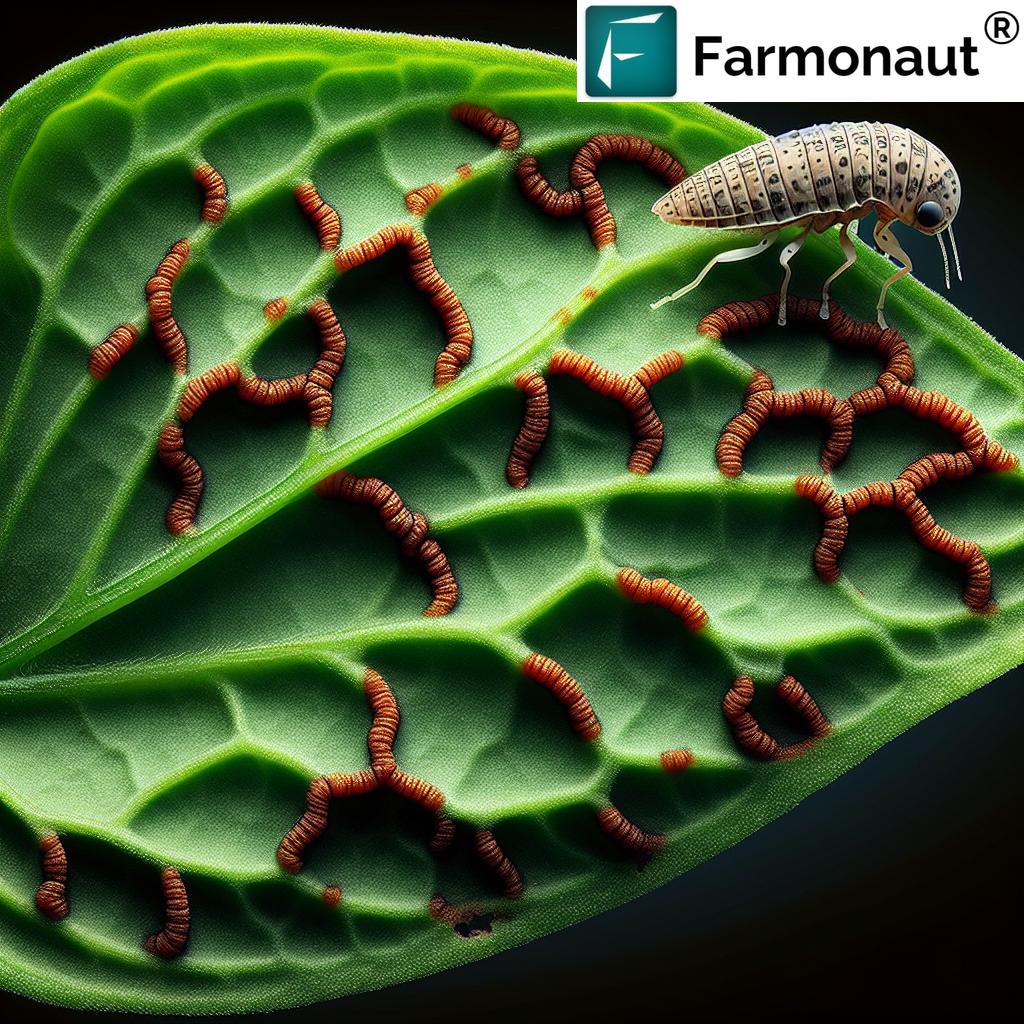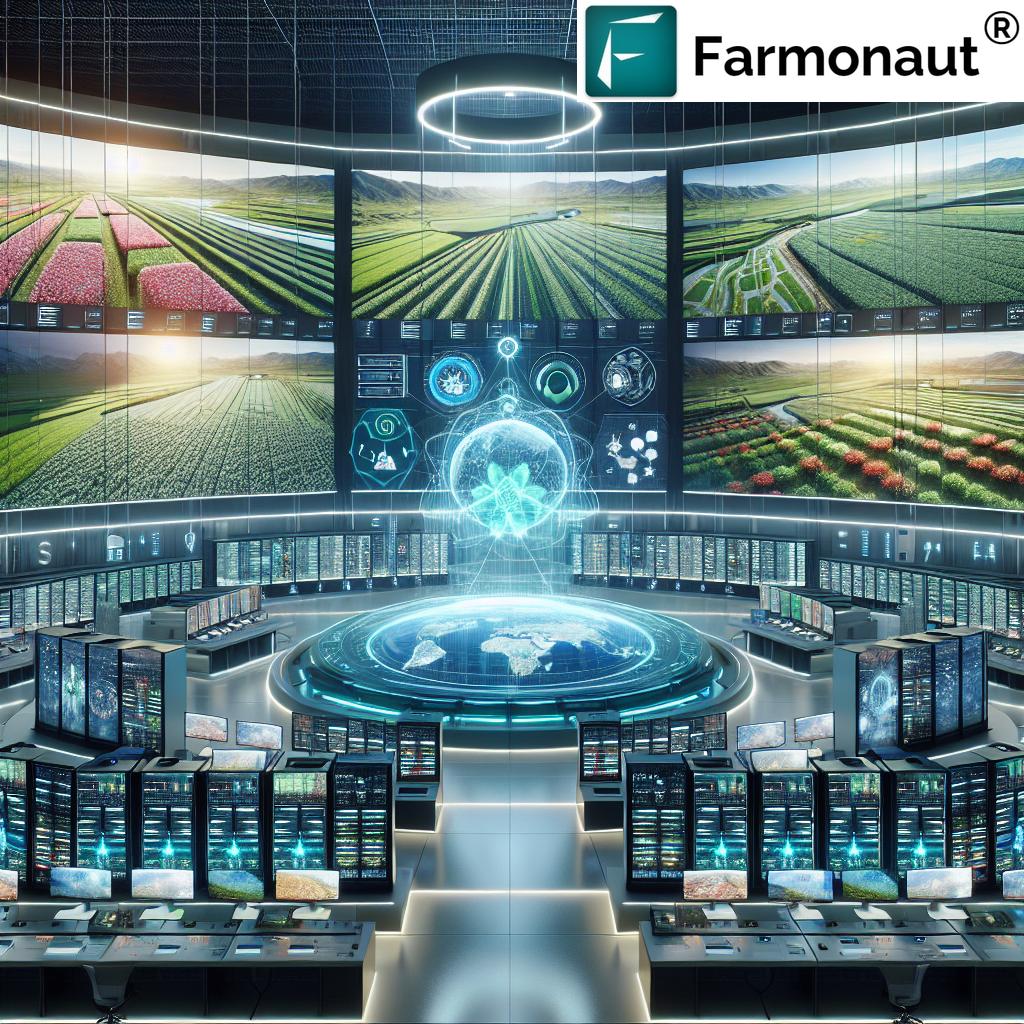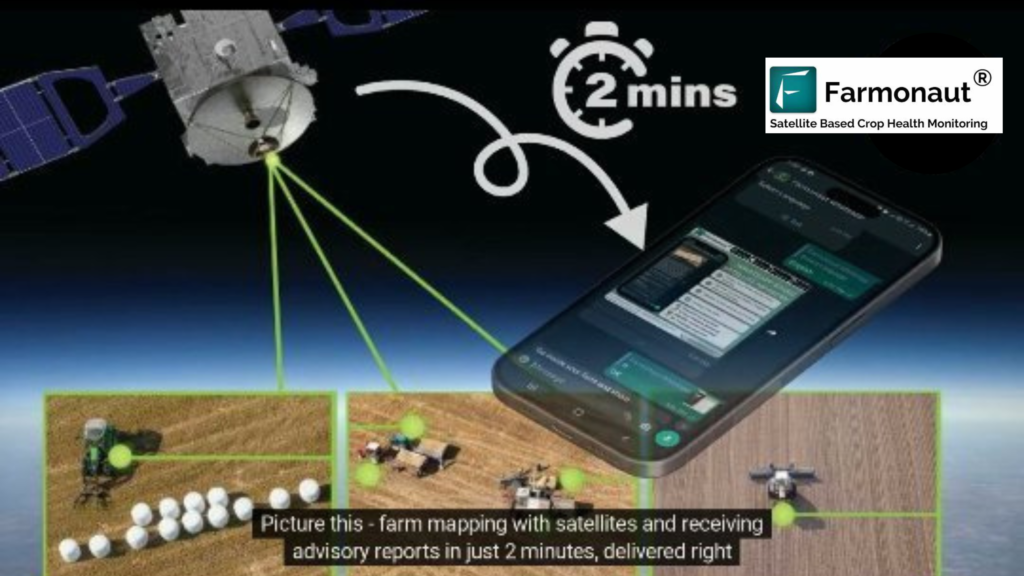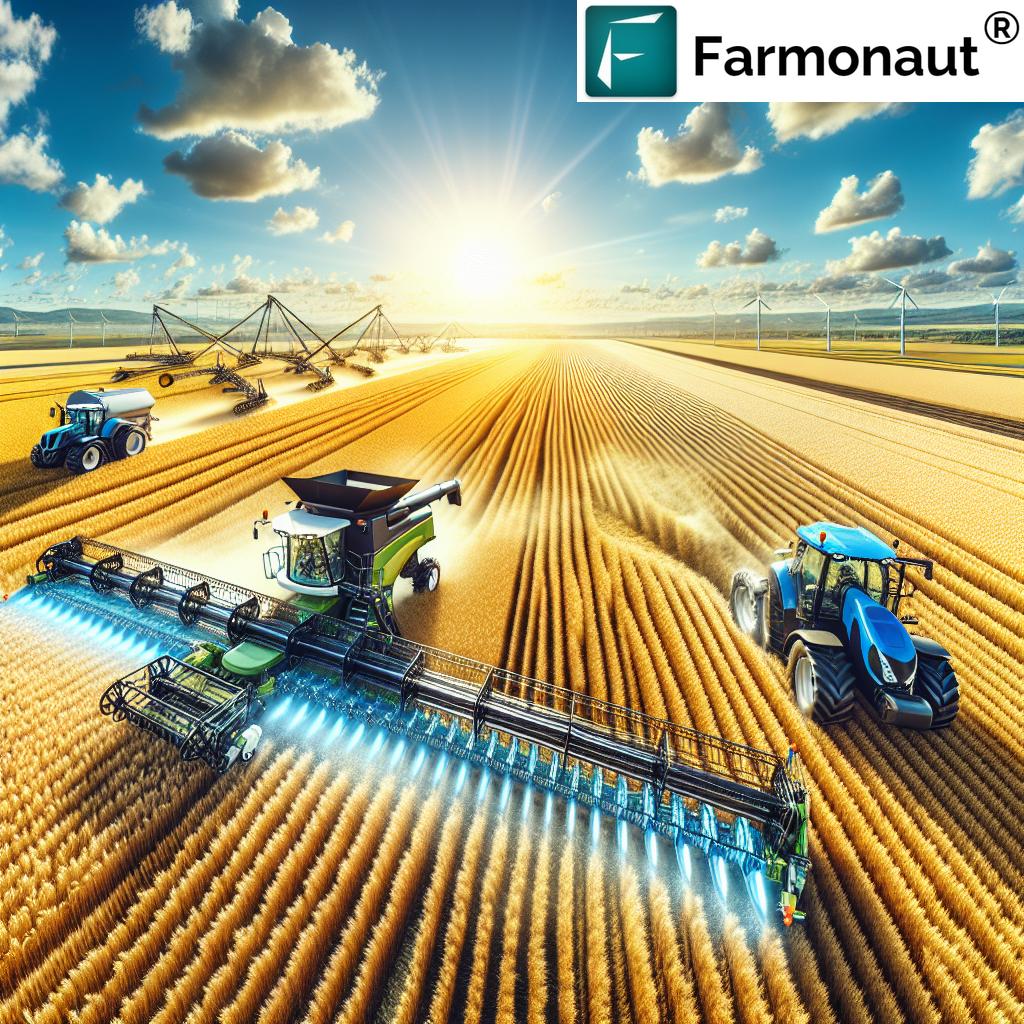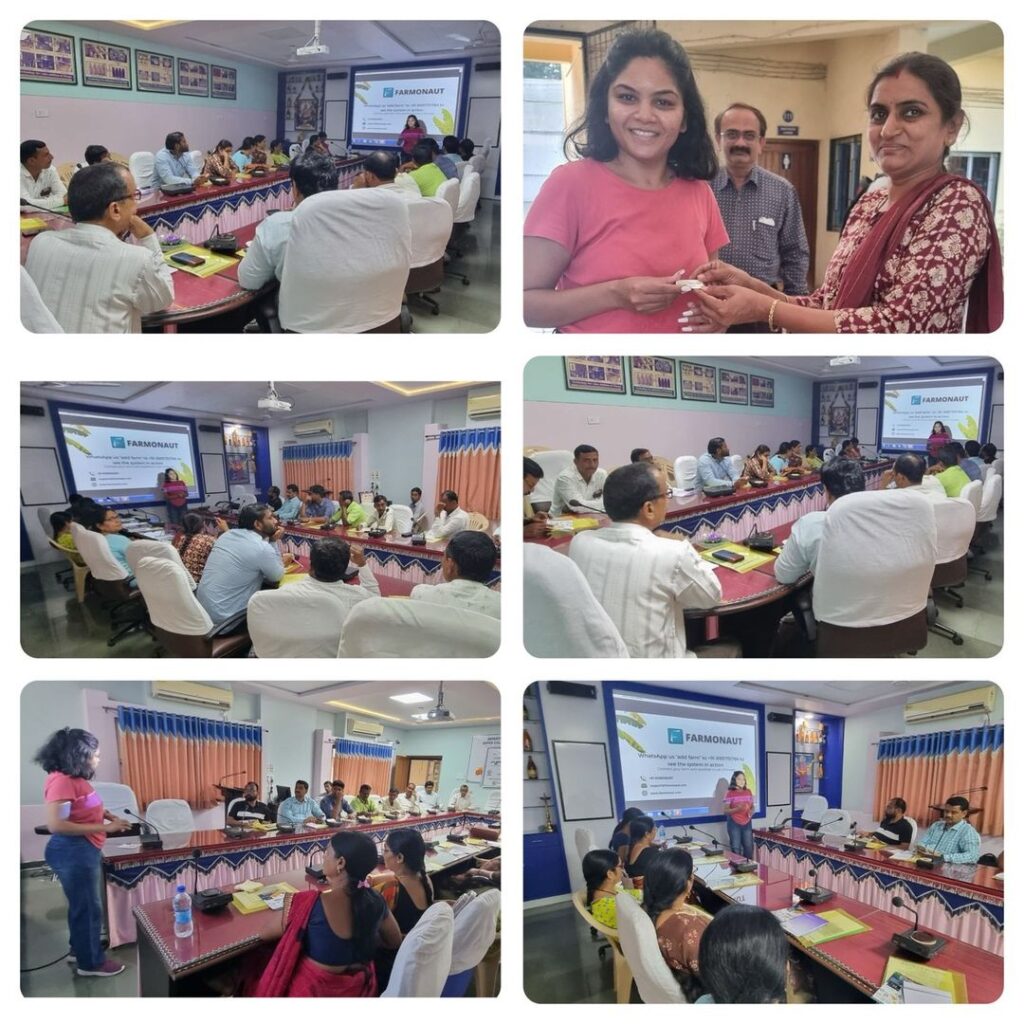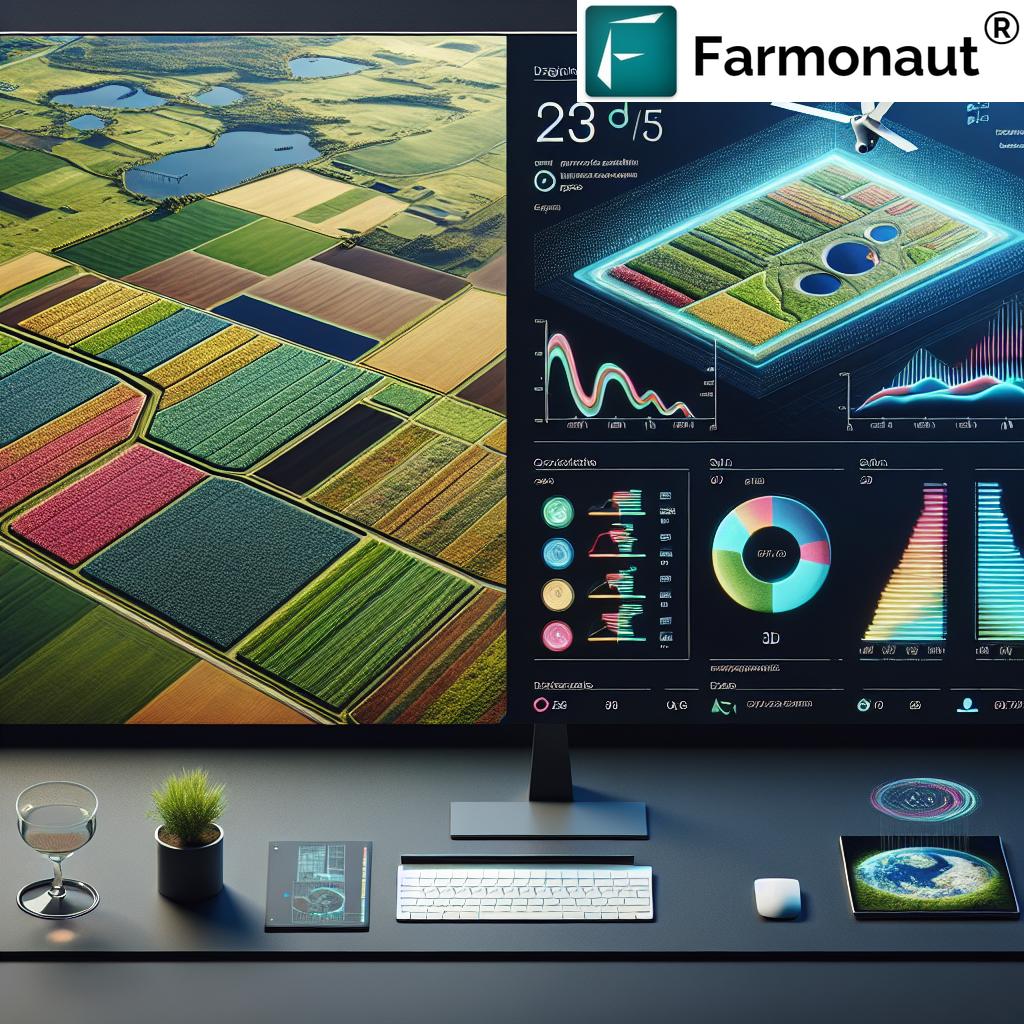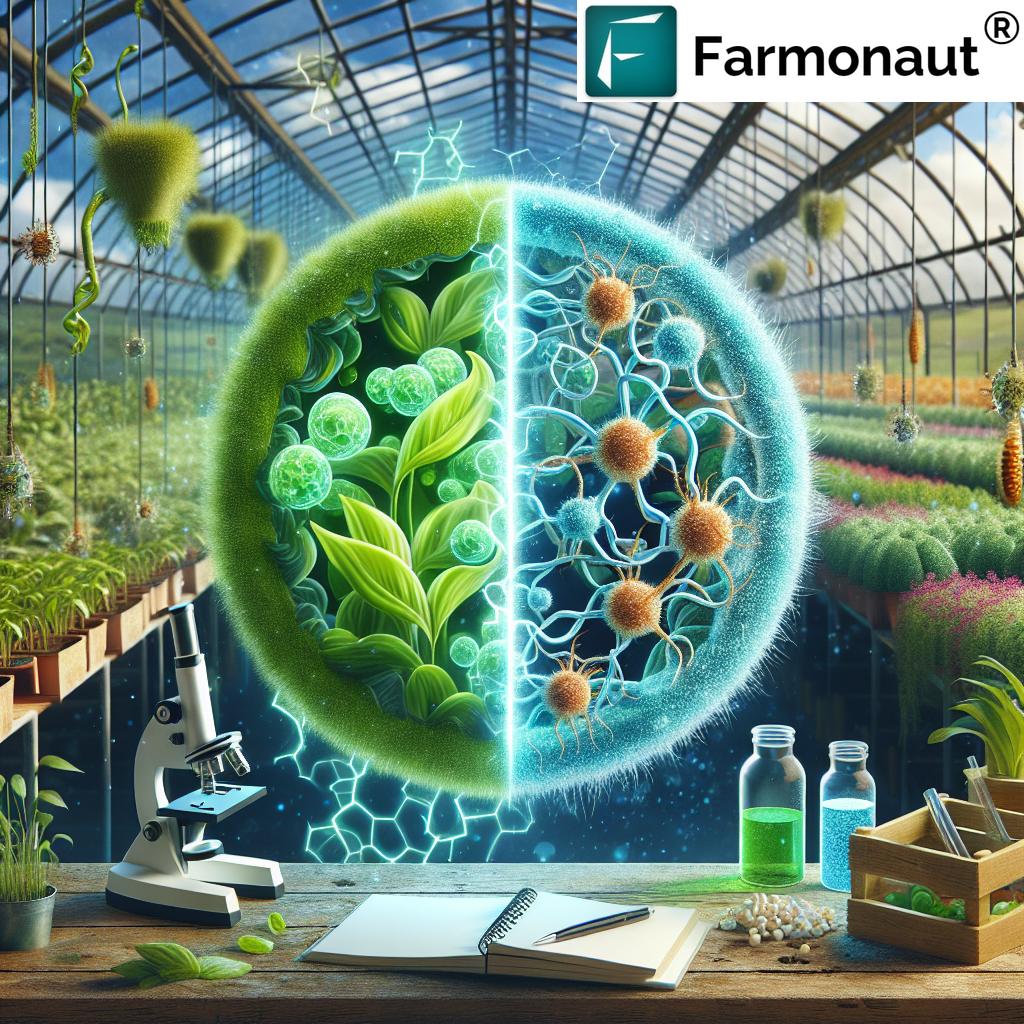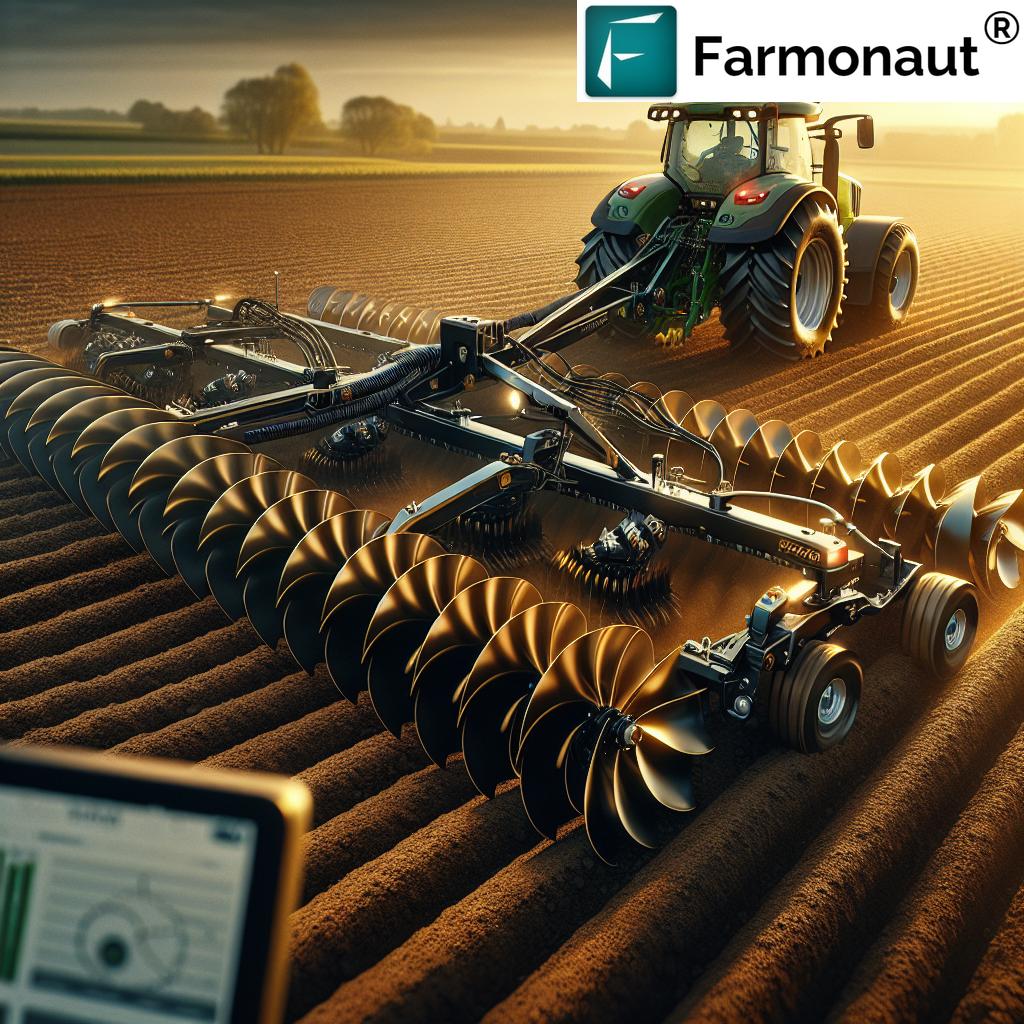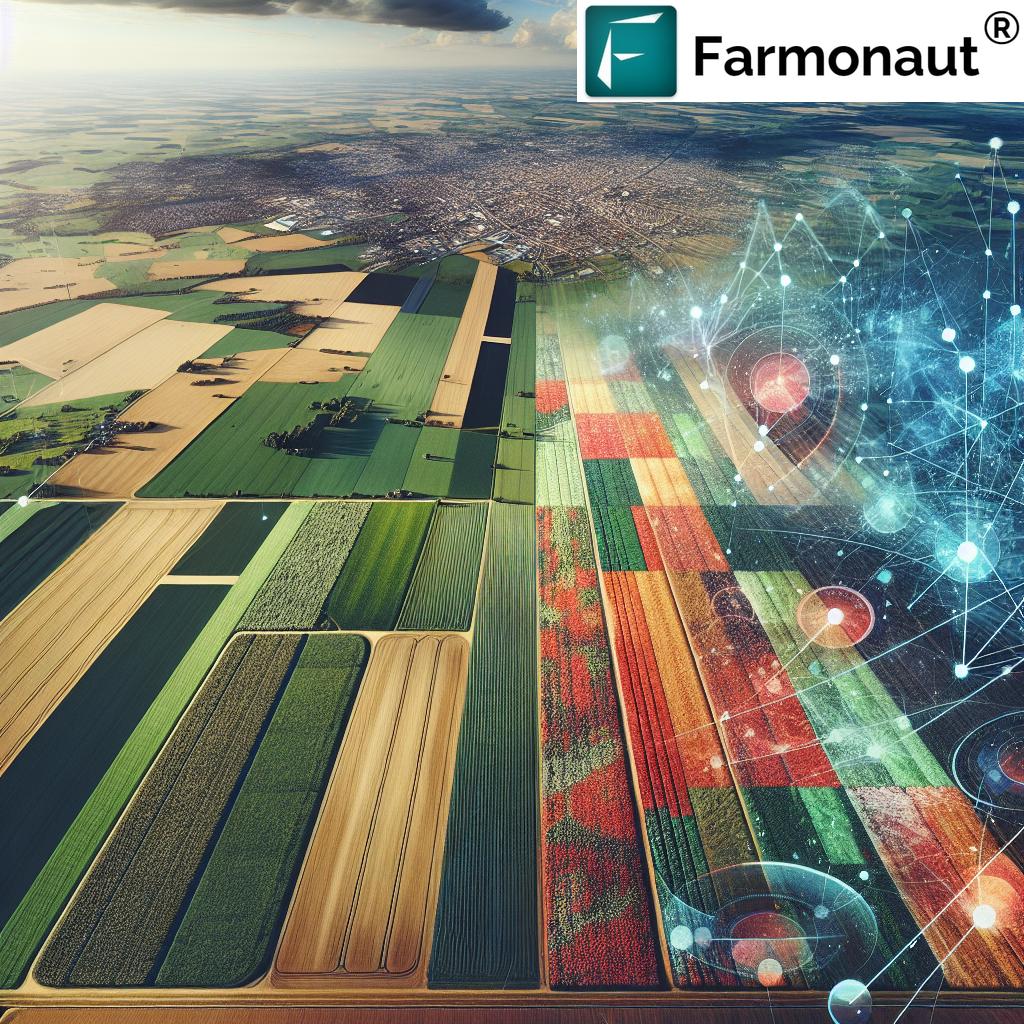Revolutionizing Organic Farming: How AgTech Solutions Optimize Supply Chains and Boost Crop Quality
“The global organic food market is projected to grow significantly, driving demand for AgTech solutions in sustainable farming.”
In the ever-evolving landscape of agriculture, we are witnessing a remarkable transformation in the way organic farming is conducted. As the demand for sustainable and healthy food options continues to rise, the integration of agricultural technology (AgTech) solutions has become crucial in optimizing the organic farming supply chain and enhancing crop quality. In this comprehensive exploration, we’ll delve into how digital agriculture platforms are revolutionizing traditional farming practices, paving the way for a more efficient, transparent, and sustainable future in food production.
The Rise of Organic Farming Technology
Organic farming has long been associated with traditional methods and a back-to-basics approach. However, the growing global population and increasing environmental concerns have necessitated a shift towards more efficient and sustainable farming practices. This is where organic farming technology comes into play, bridging the gap between time-honored organic principles and modern agricultural innovations.
- Smart farm management systems
- Precision agriculture software
- Digital agriculture platforms
- Crop monitoring and traceability solutions
These technological advancements are not only enhancing the productivity of organic farms but also ensuring the integrity of organic products throughout the supply chain. By leveraging data analytics, remote sensing, and artificial intelligence, farmers can now make more informed decisions about sowing, harvesting, and crop health management.
AgTech Solutions for Supply Chain Optimization
One of the most significant challenges in organic farming has been maintaining efficiency and transparency throughout the supply chain. AgTech solutions are addressing these issues head-on, providing innovative tools for every stage of the production process.
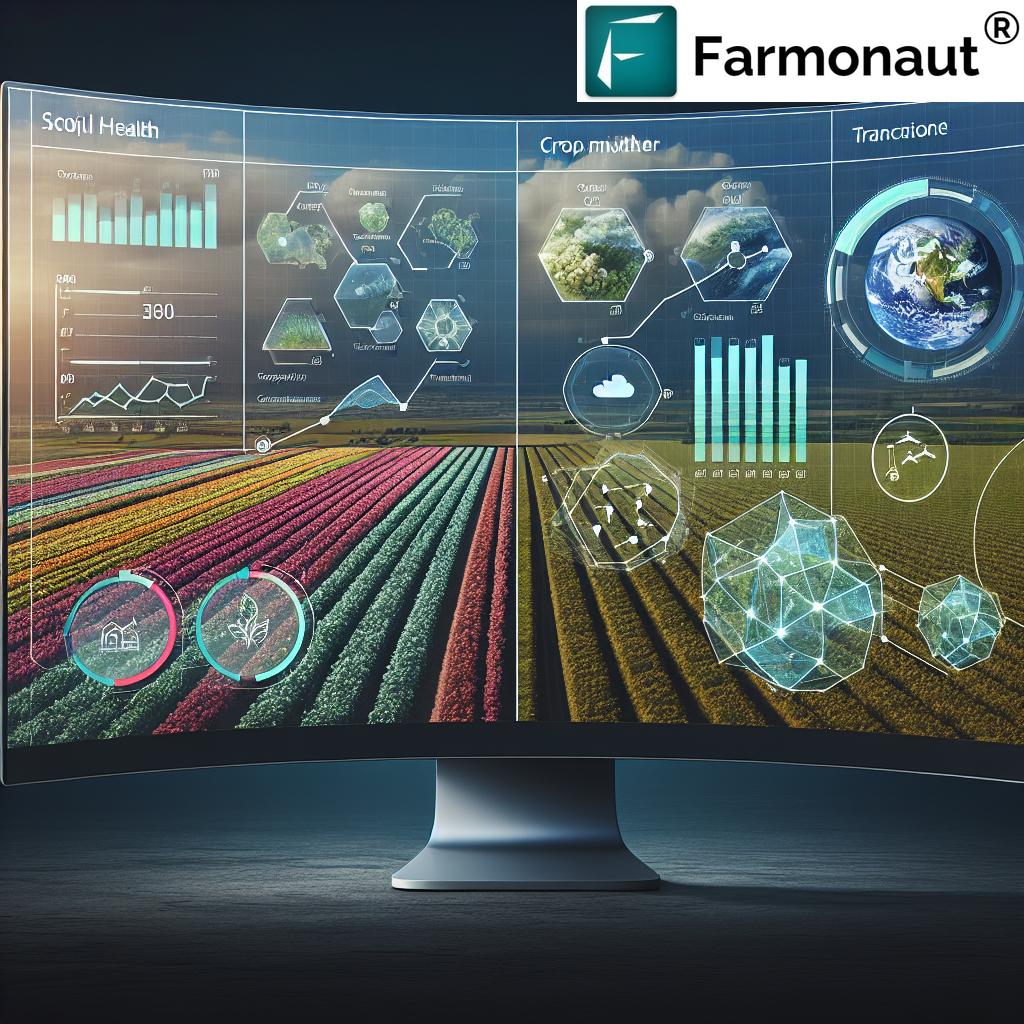
Let’s explore how these solutions are transforming various aspects of the organic farming supply chain:
1. Crop Monitoring and Health Assessment
Advanced sensors and satellite imaging technologies allow for real-time monitoring of crop health. This enables farmers to detect issues early and take prompt action, reducing the need for chemical interventions and maintaining organic integrity.
2. Precision Resource Management
AgTech solutions help optimize the use of water, organic fertilizers, and other resources. By providing precise data on soil conditions and plant needs, these technologies ensure that resources are used efficiently, minimizing waste and environmental impact.
3. Harvest Timing and Yield Prediction
AI-powered algorithms can analyze various data points to predict optimal harvest times and estimate yields accurately. This information is crucial for supply chain planning and meeting market demands without compromising on quality.
4. Traceability and Certification Compliance
Blockchain-based systems are revolutionizing traceability in organic farming. These technologies create an immutable record of each product’s journey from farm to consumer, ensuring compliance with organic certification regulations and building consumer trust.
The Impact of Smart Farm Management
Smart farm management systems are at the heart of the AgTech revolution in organic farming. These comprehensive platforms integrate various technologies to provide farmers with a holistic view of their operations.
“Farmonaut’s software leverages data analytics and remote sensing to optimize crop yields and quality across entire organic supply chains.”
Key features of smart farm management systems include:
- Real-time data collection and analysis
- Automated alerts for potential issues
- Integration with weather forecasting systems
- Resource allocation optimization
- Compliance management tools
By utilizing these systems, organic farmers can significantly improve their decision-making processes, leading to better crop quality, higher yields, and more sustainable practices.
Enhancing Farm-to-Consumer Transparency
In the organic food market, transparency is paramount. Consumers are increasingly interested in knowing where their food comes from and how it’s produced. AgTech solutions are playing a crucial role in bridging this information gap.
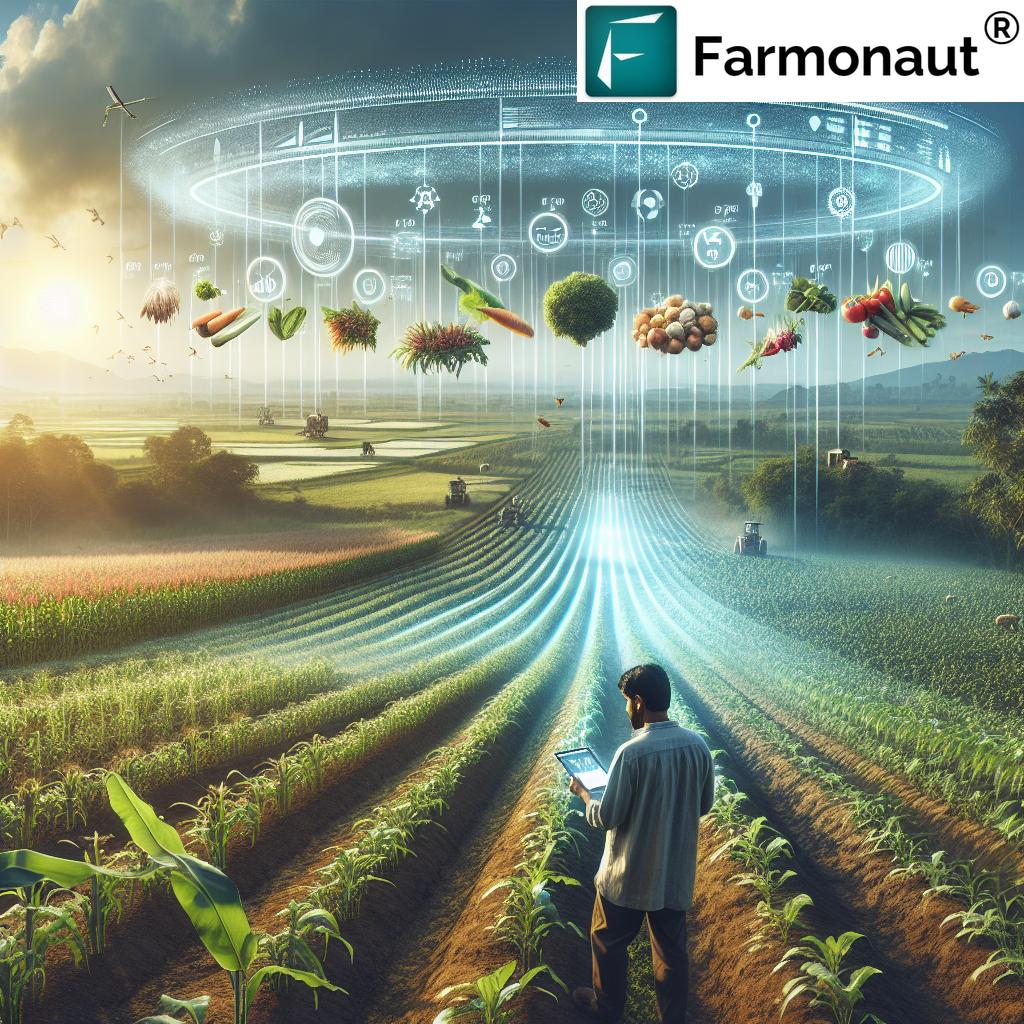
Digital agriculture platforms are enabling:
- QR code-based product information
- Real-time tracking of produce from farm to shelf
- Detailed information on farming practices used
- Direct communication channels between farmers and consumers
This level of transparency not only builds consumer trust but also helps organic farmers differentiate their products in a competitive market.
The Role of Data Analytics in Organic Farming
Data analytics is revolutionizing the way organic farmers make decisions. By collecting and analyzing vast amounts of data from various sources, including satellite imagery, soil sensors, and weather stations, farmers can gain unprecedented insights into their operations.
Some key applications of data analytics in organic farming include:
- Predictive modeling for pest and disease management
- Optimization of crop rotation strategies
- Yield forecasting and market trend analysis
- Personalized recommendations for soil health improvement
By leveraging these insights, organic farmers can make more informed decisions, leading to improved crop quality and more efficient resource utilization.
Precision Agriculture: A Game-Changer for Organic Farming
Precision agriculture techniques, once primarily associated with conventional farming, are now being adapted for organic systems. These technologies allow for site-specific management of fields, taking into account the unique characteristics of each area.
Key components of precision agriculture in organic farming include:
- GPS-guided machinery for precise planting and harvesting
- Variable rate technology for organic fertilizer application
- Drone-based imaging for crop health assessment
- Automated irrigation systems with soil moisture sensors
By implementing these technologies, organic farmers can optimize their practices, reduce waste, and improve overall farm efficiency.
Overcoming Challenges in Organic Farming with AgTech
While organic farming offers numerous benefits, it also comes with unique challenges. AgTech solutions are helping farmers address these issues more effectively:
1. Pest and Disease Management
Advanced monitoring systems and predictive models help organic farmers identify potential pest and disease threats early, allowing for timely implementation of organic control methods.
2. Soil Health Maintenance
Precision soil testing and analysis tools enable farmers to maintain optimal soil health without relying on synthetic fertilizers, ensuring long-term sustainability of organic farms.
3. Weed Control
Robotic weeders and AI-powered image recognition systems are revolutionizing weed management in organic farms, reducing the need for manual labor and improving efficiency.
4. Climate Resilience
AgTech solutions provide farmers with tools to adapt to changing climate conditions, such as drought-resistant crop varieties and advanced weather prediction models.
The Future of Organic Farming: Integrating AgTech and Sustainability
As we look to the future, the integration of AgTech solutions in organic farming is set to deepen, bringing about even more significant improvements in sustainability and efficiency. Some emerging trends include:
- AI-powered decision support systems
- Internet of Things (IoT) devices for comprehensive farm monitoring
- Vertical farming technologies adapted for organic production
- Blockchain-based systems for end-to-end supply chain management
These advancements will not only enhance the productivity of organic farms but also contribute to broader goals of food security and environmental conservation.
Comparative Analysis: Traditional vs. AgTech-Enabled Organic Farming
| Aspect | Traditional Organic Farming | AgTech-Enabled Organic Farming |
|---|---|---|
| Crop Monitoring | Manual observation, limited data | Real-time satellite and sensor data, AI analysis (30% more efficient) |
| Supply Chain Management | Paper-based records, limited traceability | Blockchain-enabled traceability, real-time tracking (100% transparent) |
| Yield Optimization | Based on historical knowledge and intuition | Data-driven decisions, predictive modeling (20% yield increase) |
| Traceability | Limited, often reliant on manual record-keeping | End-to-end digital traceability (100% product journey trackable) |
| Compliance with Organic Certification | Time-consuming manual documentation | Automated compliance tracking and reporting (50% time saved) |
| Resource Efficiency | General application based on experience | Precision application based on real-time data (25% resource savings) |
| Data-Driven Decision Making | Limited, mostly intuition-based | Comprehensive data analysis for informed decisions (40% improved accuracy) |
| Farm-to-Consumer Transparency | Limited information available to consumers | QR codes, apps providing detailed product journey (90% increase in transparency) |
The Role of Farmonaut in Revolutionizing Organic Farming
In the realm of AgTech solutions for organic farming, Farmonaut stands out as a pioneering platform that integrates cutting-edge technologies to enhance farm management and supply chain optimization. By leveraging satellite imagery, artificial intelligence, and data analytics, Farmonaut provides organic farmers with powerful tools to improve their operations.
Key features of Farmonaut’s platform include:
- Real-time crop health monitoring using satellite data
- AI-powered advisory system for personalized farm management
- Blockchain-based traceability solutions for supply chain transparency
- Resource management tools for optimizing farm operations
These features enable organic farmers to make data-driven decisions, improve crop quality, and ensure compliance with organic certification standards. By providing affordable access to precision agriculture technologies, Farmonaut is helping to democratize advanced farming practices for organic producers of all sizes.
For more information on Farmonaut’s solutions, visit their platform:
Explore Farmonaut’s mobile apps:
For developers interested in integrating Farmonaut’s technology:
Conclusion: Embracing the Future of Organic Farming
The integration of AgTech solutions in organic farming represents a significant step forward in our quest for sustainable and efficient food production. By leveraging technologies such as data analytics, remote sensing, and blockchain, we can optimize supply chains, enhance crop quality, and build greater transparency in the organic food market.
As consumers increasingly demand traceable, high-quality organic produce, the role of AgTech in meeting these expectations becomes ever more critical. Platforms like Farmonaut are at the forefront of this revolution, providing farmers with the tools they need to thrive in an increasingly competitive and environmentally conscious market.
The future of organic farming lies in the harmonious blend of traditional wisdom and cutting-edge technology. By embracing these innovations, we can create a more sustainable, efficient, and transparent food system that benefits farmers, consumers, and the planet alike.
Frequently Asked Questions (FAQ)
1. How does AgTech improve organic farming practices?
AgTech enhances organic farming by providing real-time data for better decision-making, optimizing resource use, improving crop monitoring, and enabling precise management of farm operations.
2. Can small-scale organic farmers benefit from AgTech solutions?
Yes, many AgTech solutions, including platforms like Farmonaut, are designed to be accessible and affordable for small-scale farmers, helping them improve productivity and compete in the market.
3. How does blockchain technology contribute to organic farming?
Blockchain enables transparent and immutable record-keeping throughout the supply chain, ensuring traceability of organic products and helping maintain the integrity of organic certifications.
4. What role does AI play in organic crop management?
AI analyzes vast amounts of data to provide insights on crop health, predict potential issues, and offer personalized recommendations for organic farm management.
5. How can AgTech help in complying with organic certification requirements?
AgTech solutions offer automated tracking and reporting tools that simplify the process of documenting farming practices and maintaining compliance with organic certification standards.










